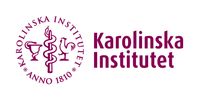Major research project provides new clues to schizophrenia
[PRESS RELEASE 2017-03-14] Researchers at Karolinska Institutet collaborating in the large-scale Karolinska Schizophrenia Project are taking an integrative approach to unravel the disease mechanisms of schizophrenia. In the very first results now presented in the prestigious scientific journal Molecular Psychiatry, the researchers show that patients with schizophrenia have lower levels of the vital neurotransmitter GABA as well as changes in the brain's immune cells.

Schizophrenia is one of the most disabling psychiatric diseases and affects approximately one per cent of the population. It commonly onsets in late adolescence and is often a life-long condition with symptoms such as delusions, hallucinations, and anxiety. The disease mechanisms are largely unknown, which has hampered the development of new drugs. The drugs currently available are designed to alleviate the symptoms, but are only partly successful, as only 20 per cent of the patients become symptom-free.
The Karolinska Schizophrenia Project (KaSP) brings together researchers from a number of different scientific disciplines to build up a comprehensive picture of the disease mechanisms and to discover new targets for drug therapy. Patients with an acute first-episode psychosis are recruited and undergo extensive tests and investigations. Cognitive function, genetic variation, biochemical anomalies as well as brain structure and function are analysed using the latest techniques and then compared with healthy peers.
The first results from the project are now presented in two studies published in the journal Molecular Psychiatry. One of the studies shows that patients with newly debuted schizophrenia have lower levels of the neurotransmitter GABA in their cerebrospinal fluid than healthy people and that the lower the concentration of GABA the more serious their symptoms are.
GABA is involved in most brain functions and along with glutamate it accounts for almost 90 per cent of all signal transmission. While glutamate stimulates brain activity, GABA inhibits it, and the two neurotransmitters interact with each other.
”Over the years, animal studies have suggested a link between decreased levels of GABA and schizophrenia,” says Professor Göran Engberg at Karolinska Institutet's Department of Physiology and Pharmacology. ”Our results are important because they clinically substantiate this hypothesis.”
The other study used the imaging technique of positron emission tomography (PET) to show that patients with untreated schizophrenia have lower levels of TSPO (translocator protein), which is expressed on immune cells such as microglia and astrocytes.
”Our interpretation of the results is an altered function of immune cells in the brain in early-stage schizophrenia,” says Senior lecturer Simon Cervenka at Karolinska Institutet's Department of Clinical Neuroscience.
The results of the two studies provide new clues to the pathological mechanisms of schizophrenia, but it is unclear if the changes are the cause or the result of the disease. Follow-up studies are now underway to examine what causes the anomalies and how these biological processes can be influenced to change the progression of the disease.
KaSP is a collaboration between clinical and preclinical research groups at Karolinska Institutet and four psychiatric clinics under Stockholm County Council.
The study led by Göran Engberg was supported by grants from the Swedish Research Council, the Swedish Brain Foundation, Åhlén-stiftelsen, the Swedish Society of Medicine, Petrus och Augusta Hedlunds Stiftelse, Torsten Söderbergs Stiftelse, the AstraZeneca-Karolinska Institutet Joint Research Program in Translational Science, Söderström Königska fonden, Professor Bror Gadelius Minne, Knut och Alice Wallenbergs stiftelse, Stockholm County Council and KID-funding from Karolinska Institutet.
The study led by Simon Cervenka was supported by grants from The Swedish Research Council, Stockholm County Council, the Swedish Society of Medicine, PRIMA Barn- och Vuxenpsykiatri AB, Torsten Söderbergs Stiftelse, Söderström Königska fonden, the European Union's Seventh Framework Programme, and Karolinska Institutet's Centre for Psychiatry Research. One of the co-authors is employed by AstraZeneca, a couple of them have received grant support from AstraZeneca and served as one-off speakers for Roche and/or Otsuka Pharmaceuticals, and one has participated in workshops organized by Otsuka Pharmaceuticals.
Publications:
'CSF GABA is reduced in first-episode psychosis and associates to symptom severity'. Orhan F, Fatouros-Bergman H, Goiny M, Malmqvist A, Piehl F, Karolinska Schizophrenia Project (KaSP) Consortium, Cervenka S, Collste K, Victorsson P, Sellgren CM, Flyckt L, Erhardt S, Engberg G. Molecular Psychiatry, online 14 March 2017. doi:10.1038/MP.2017.25.
'Lower levels of the glial cell marker TSPO in drug-naive first-episode psychosis patients as measured using PET and [11C]PBR28'. Collste K, Plavén-Sigray P, Fatouros-Bergman H, Victorsson P, Schain M, Forsberg A, Amini N, Aeinehband S, Karolinska Schizophrenia Project (KaSP) consortium, Erhardt S, Halldin C, Flyckt L, Farde L, Cervenka S. Molecular Psychiatry, online 14 February 2017. doi: 10.1038/mp.2016.247.
Contacts
For more information, please contact:
Göran Engberg, Professor
Department of Physiology and Pharmacology
Phone: +46 (0)8 524 867 17
Mobile: +46 (0)70 352 67 17
E-mail: Goran.Engberg@ki.se
Simon Cervenka, MD, Senior lecturer
Department of Clinical Neuroscience
Phone: +46 (0)8 5177 91 85
Mobile: +46 (0)70 994 42 26
E-mail: Simon.Cervenka@ki.se
Images

Karolinska Institutet (http://ki.se/english) is one of the world's leading medical universities. Its vision is to significantly contribute to the improvement of human health. Karolinska Institutet accounts for over 40 per cent of the medical academic research conducted in Sweden and offers the country´s broadest range of education in medicine and health sciences. The Nobel Assembly at Karolinska Institutet selects the Nobel laureates in Physiology or Medicine.
Subscribe to releases from Karolinska Institutet - English
Subscribe to all the latest releases from Karolinska Institutet - English by registering your e-mail address below. You can unsubscribe at any time.
Latest releases from Karolinska Institutet - English
New method reveals how the brain and inner ear are formed3.4.2025 20:00:00 CEST | Pressmeddelande
Researchers at Karolinska Institutet have developed a method that shows how the nervous system and sensory organs are formed in an embryo. By labelling stem cells with a genetic ‘barcode’, they have been able to follow the cells’ developmental journey and discover how the inner ear is formed in mice. The discovery, published in Science, could provide important insights for future treatment of hearing loss.
Fluoride in drinking water is associated with impaired childhood cognition7.3.2025 15:30:00 CET | Pressmeddelande
Elevated concentrations of fluoride can occur in well water, and in some countries, it is added to drinking water to counteract caries in the population. A study from Karolinska Institutet in Sweden now supports a few previous studies indicating that exposure to fluoride during the fetal stage or early childhood may impair cognition in children. The study is published in the journal Environmental Health Perspectives.
Children with ARFID face increased risk of disease17.2.2025 17:00:00 CET | Pressmeddelande
Children with avoidant restrictive food intake disorder (ARFID) have an elevated risk of developing psychiatric and physical conditions, a new study from Karolinska Institutet published in JAMA Pediatrics reports. The study highlights the importance of early identification to improve care of these children.
Preterm babies receive insufficient pain management27.1.2025 15:29:17 CET | Pressmeddelande
A large proportion of babies born very early need intensive care, which can be painful. But the healthcare system fails to provide pain relief to the full extent. This is shown by the largest survey to date of pain in neonatal care, now published in the journal Pain.
New study paves way for immunotherapies tailored for childhood cancers20.1.2025 17:00:00 CET | Pressmeddelande
Researchers at Karolinska Institutet and the Astrid Lindgren Children’s Hospital in Sweden have determined how children’s immune systems react to different kinds of cancer depending on their age. The study, which is published in the journal Cell, reveals significant differences between the immune response of children and adults, and has the potential to lead to new tailored treatments for children with cancer.
In our pressroom you can read all our latest releases, find our press contacts, images, documents and other relevant information about us.
Visit our pressroom